Indigenous Governance Database
strategic planning
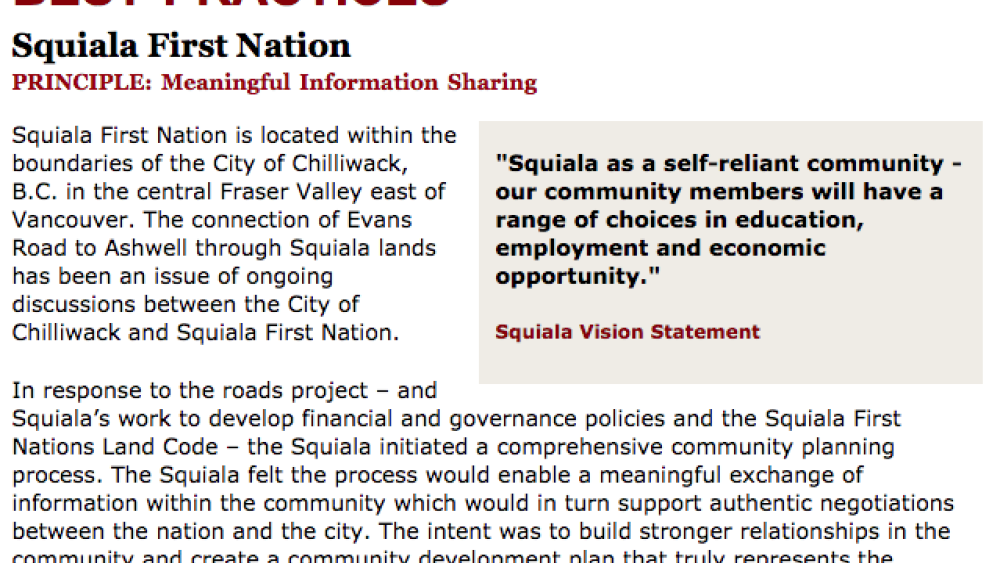
Best Practices Case Study (Meaningful Information Sharing): Squiala First Nation
Squiala First Nation is located within the boundaries of the City of Chilliwack, B.C. in the central Fraser Valley east of Vancouver. The connection of Evans Road to Ashwell through Squiala lands has been an issue of ongoing discussions between the City of Chilliwack and Squiala First Nation. In…
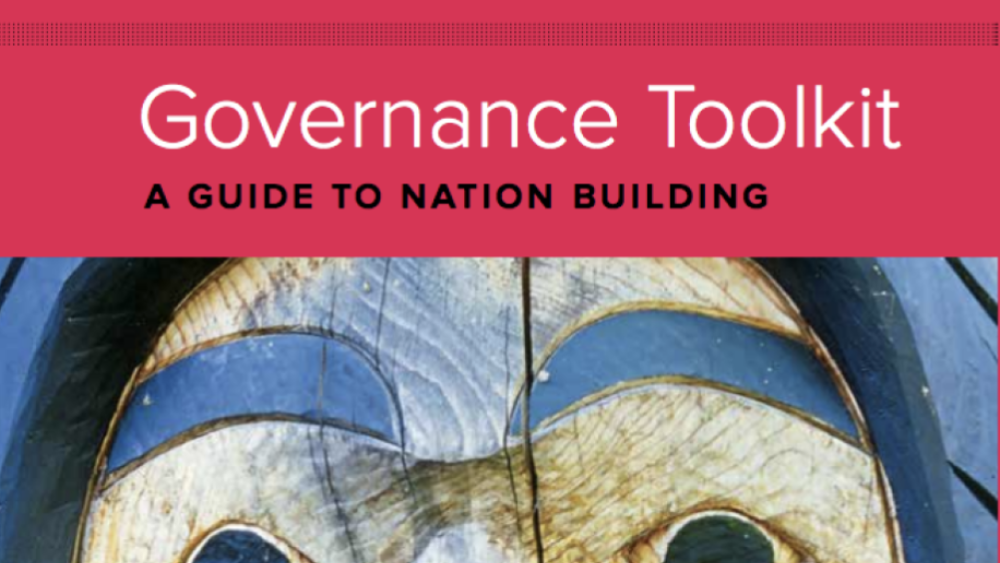
British Columbia Assembly of First Nations Governance Toolkit: A Guide to Nation Building
The BCAFN is pleased to present the first edition of the BCAFN Governance Toolkit: A Guide to Nation Building in accordance with our Building on OUR Success action plan and the first pillar of that plan, "Strong and Appropriate Governance." The Toolkit is a comprehensive guide intended to assist…
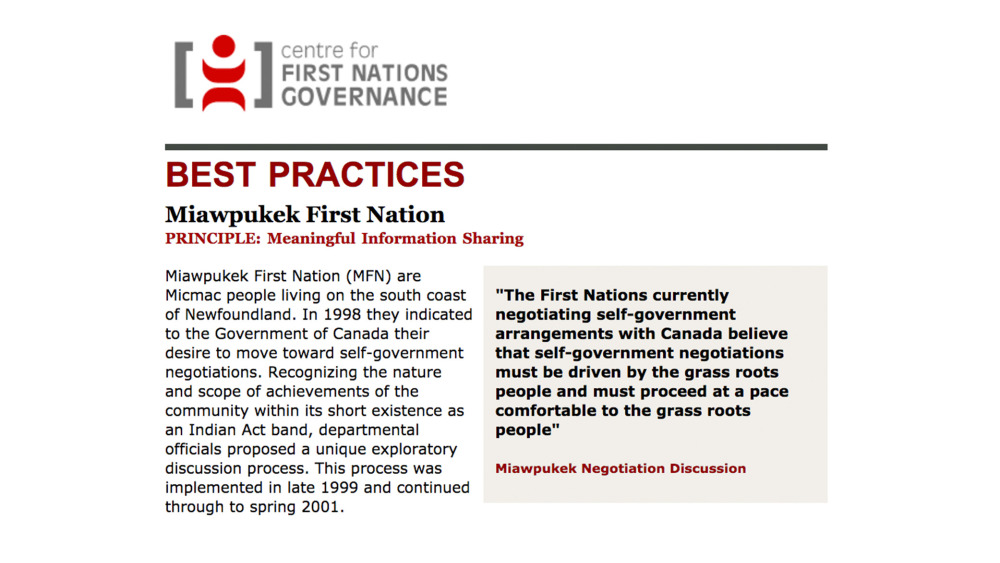
Best Practices Case Study (Meaningful Information Sharing): Miawpukek First Nation
Miawpukek First Nation (MFN) are Micmac people living on the south coast of Newfoundland. In 1998 they indicated to the Government of Canada their desire to move toward self-government negotiations. Recognizing the nature and scope of achievements of the community within its short existence as an…
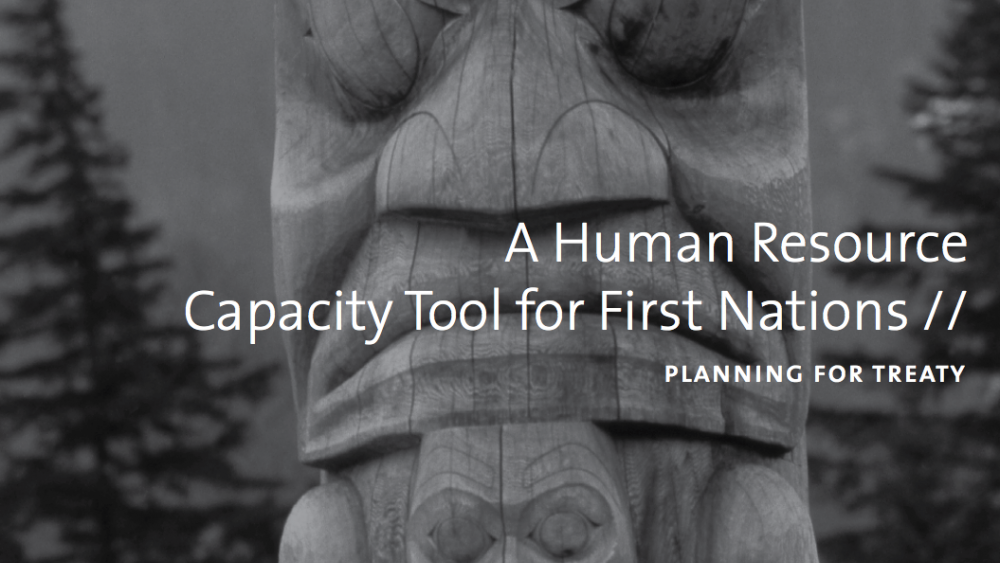
A Human Resource Capacity Tool for First Nations
This tool was developed by the British Columbia Treaty Commission (BCTC) to assist BC First Nations who are working through the treaty process with their Human Resource (HR) planning. It responds to a growing need for a practical, efficient tool for First Nations with diverse sets of priorities,…
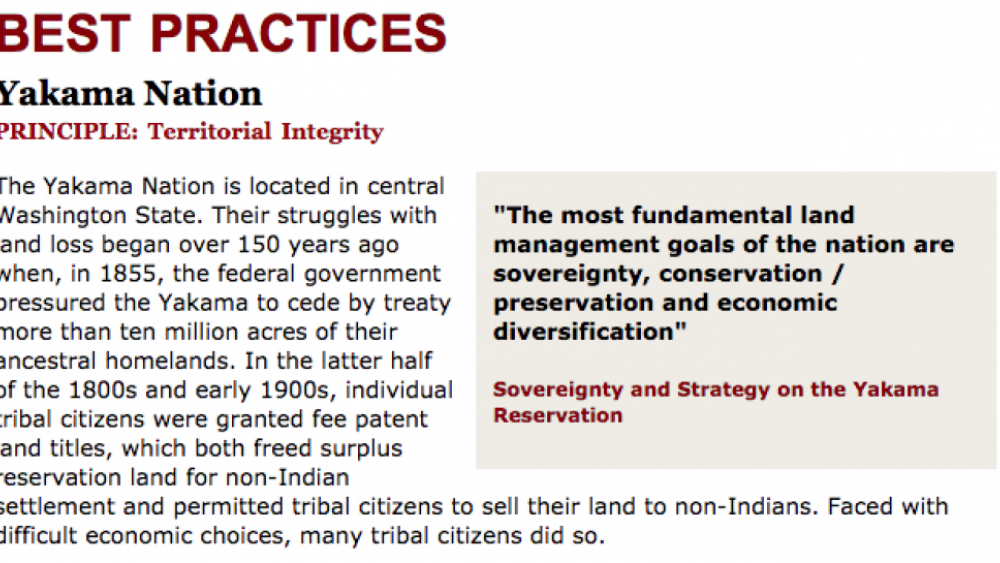
Best Practices Case Study (Territorial Integrity): Yakama Nation
The Yakama Nation is located in central Washington State. Their struggles with land loss began over 150 years ago when, in 1855, the federal government pressured the Yakama to cede by treaty more than ten million acres of their ancestral homelands. In the latter half of the 1800s and early 1900s,…
Pagination
- First page
- …
- 1
- 2
- 3
- …
